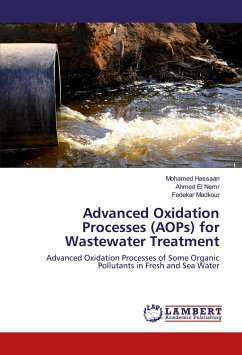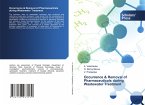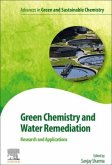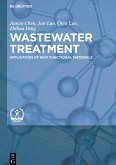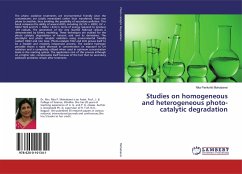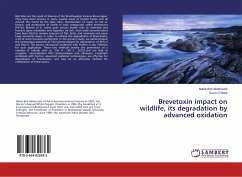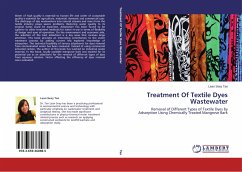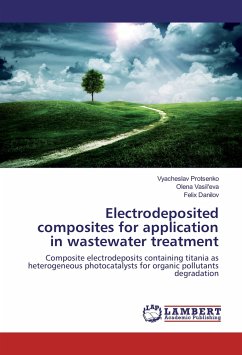The colour manufacturing industry represents a relatively small part of the overall chemical industry. Dyes and pigments are highly visible material. A major source of colour release into the environment is associated with the incomplete exhaustion of dyes onto textile fibre from an aqueous dyeing process and the need to reduce the amount of residual dye in textile effluent has become a major concern in recent years. The aim of this work is to evaluate the efficiency of ozone and UV on the removal of five different dyes from fresh and sea water, followed by determination of the final compounds after ozone and ozone-UV treatment using GC-Ms analysis. Finally, assess the effect of the treated water which contains the final decomposed compounds on the selected marine organisms for water reuse.
Bitte wählen Sie Ihr Anliegen aus.
Rechnungen
Retourenschein anfordern
Bestellstatus
Storno

